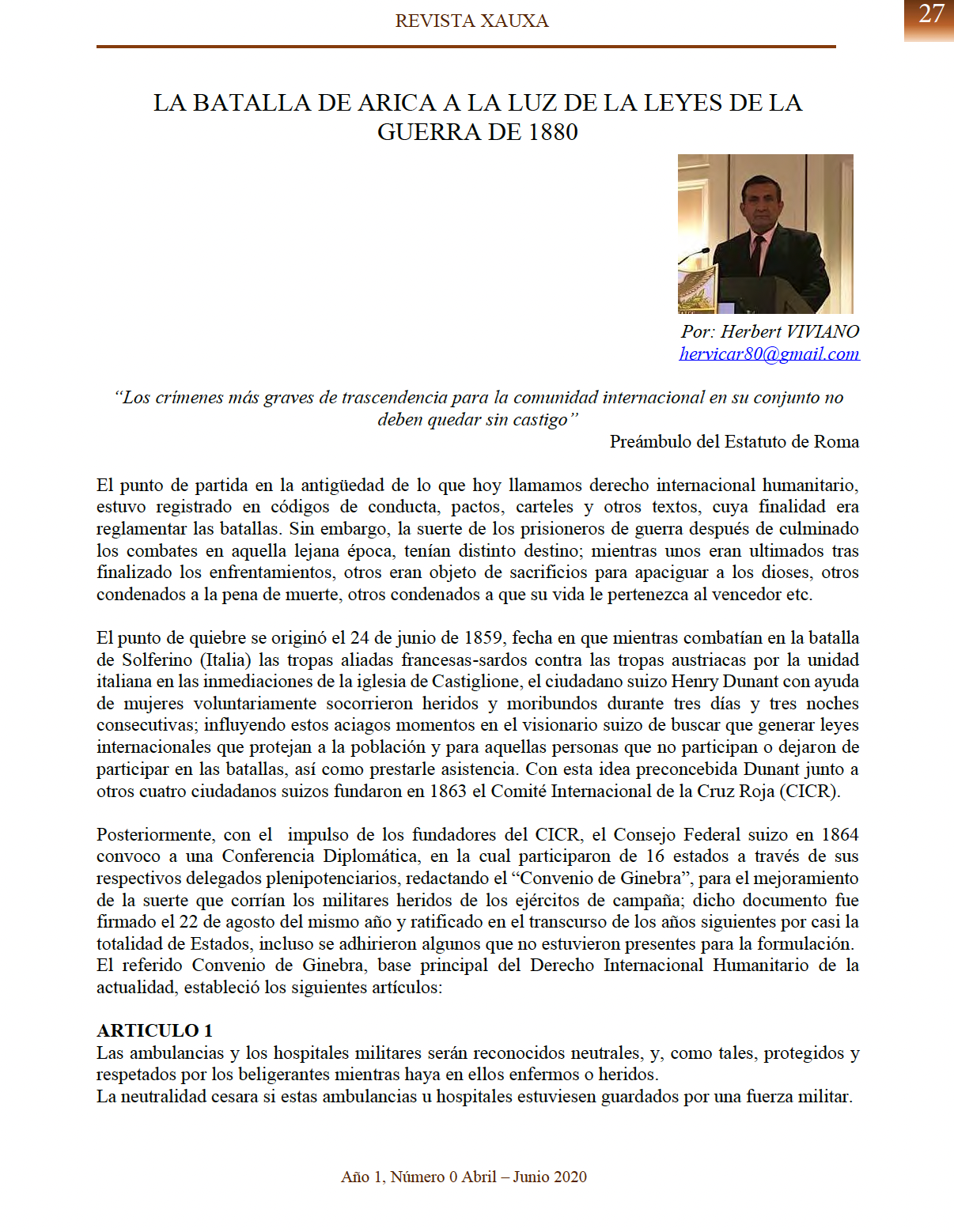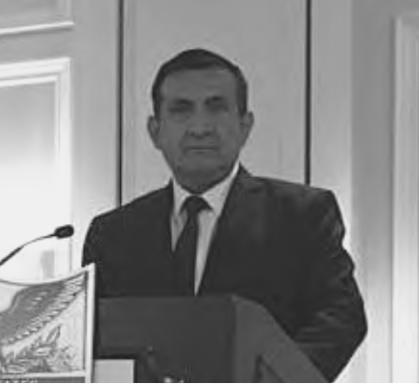LA BATALLA DE ARICA A LA LUZ DE LA LEYES DE LA GUERRA DE 1880
Artículo N° 03 de la Revista Xauxa N° 00, Año I
Resumen: El punto de quiebre se originó el 24 de junio de 1859, fecha en que mientras combatían en la batalla de Solferino (Italia) las tropas aliadas francesas-sardos contra las tropas austriacas por la unidad italiana en las inmediaciones de la iglesia de Castiglione, el ciudadano suizo Henry Dunant con ayuda de mujeres voluntariamente socorrieron heridos y moribundos durante tres días y tres noches consecutivas; influyendo estos aciagos momentos en el visionario suizo de buscar que generar leyes internacionales que protejan a la población y para aquellas personas que no participan o dejaron de participar en las batallas, así como prestarle asistencia. Con esta idea preconcebida Dunant junto a otros cuatro ciudadanos suizos fundaron en 1863 el Comité Internacional de la Cruz Roja (CICR).
Abstract: The turning point originated on June 24, 1859, the date on which while the allied French-Sardinian troops were fighting in the battle of Solferino (Italy) against the Austrian troops for the Italian unit in the vicinity of the church of Castiglione, the Swiss citizen Henry Dunant with the help of women voluntarily rescued the wounded and dying for three consecutive days and three nights; these dark moments influencing the Swiss visionary to seek to generate international laws that protect the population and for those people who do not participate or stopped participating in the battles, as well as provide assistance. With this preconceived idea, Dunant, together with four other Swiss citizens, founded the International Committee of the Red Cross (ICRC) in 1863.
Palabras claves: Ejércitos Beligerantes, Corte Penal Internacional, Conflicto Armado.
Keywords: Belligerent Armies, International Criminal Court, Armed Conflict.

Elaborado por

Herbert Viviano
Publicado el 07 de Junio del 2020
DESCARGAR ARTÍCULO

